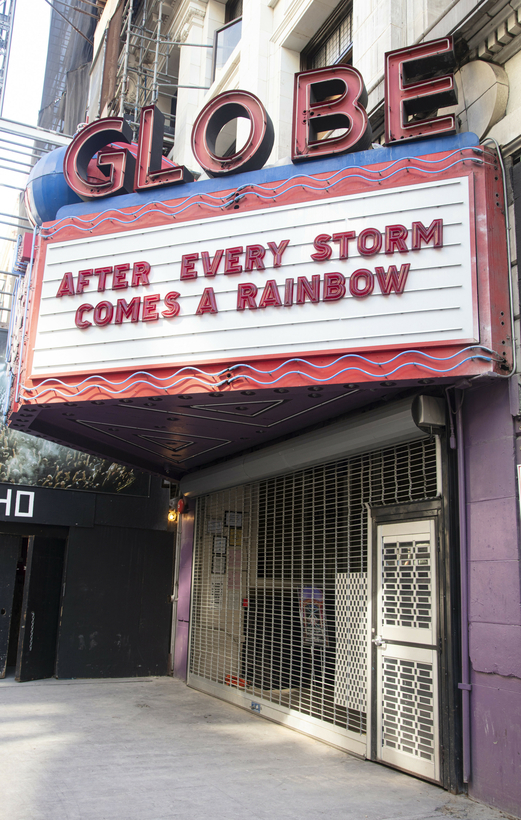Right before the lights went down at a recent preview screening of Trolls World Tour in Hong Kong, an usher screamed at a couple who decided not to sit in their assigned seats. “You have to sit exactly where your ticket says!” he yelled. “We’re doing this for a reason!”
The reason, of course, was to prevent an already jittery audience from becoming even more uncomfortable amidst the presence of the coronavirus. Signs of increased vigilance had already included mandatory use of hand sanitizer at the front entrance, a handheld temperature check upon ticket entry, quarantine wristband checks (people arriving in Hong Kong must wear tracking bracelets for 2 weeks or face jail time) and the requirement that patrons as well as staff members wear face masks at all times.
Throughout the main lobby, there were more precautionary measures. All food and beverage counters were closed, snacks were banned and huge bottles of hand sanitizer gel were placed on every table leading into the cinema. Once inside, ticket holders were placed in alternate pairs, two seats apart, so that the theater resembled a scattered checkerboard, complete with gaffer tape blocking off a significant amount of seats. This particular cinema chain claims that it doesn’t allow any theater to reach more than 50% capacity or allow more than eight seats per row to be occupied.
Future Shock
This could serve as a preview for what moviegoers in California, where cinemas have been officially allowed to reopen, will face going forward. Hong Kong was one of the first countries in the world to shut its cinemas on March 28, and also among the first to reopen on May 8. Heeding the lessons of SARS, which affected the city in 2003, it immediately self-imposed rules to limit the scope of this latest virus. All cinema owners in the city claim they sanitize theaters before opening and in between each show, with additional cleaning of public areas every hour. To date, Hong Kong has had 1,108 coronavirus cases with only four deaths.
Further north, South Korea has taken precautions to an even greater extreme. There, one cinema branch has replaced its entire human staff with robots, mobile services, and automated kiosks. Want food? L.E.D.-controlled pickup boxes can be ordered through a cinema app. Other cinemas are offering similar services via voice recognition systems. “Cinemagoers no longer need to encounter a human staff member to reserve, pick up, or scan their tickets,” says Patrick Frater, Asia Bureau Chief at Variety.
While such precautions may gradually entice timid movie fanatics into the theater, there is still an issue of what they will actually see. In Hong Kong, the delay of this year’s scheduled releases has meant replacements in the form of Wong Kar Wai’s 1990 film Days Of Being Wild, a special IMAX re-release of the Batman Trilogy, and even last year’s Cannes Jury Prize winner Les Misérables.
“Due to all the delays from Covid, we don’t know what the heck is going on,” says one Hong Kong-based film distributor. “We’re waiting for the U.S. release slate to get going.” With this week’s announcement that Tenet, Christopher Nolan’s latest film, will be released on July 30, one day ahead of its U.S. debut, what’s left of this summer’s schedule may begin to fall into place. And indeed, if there is a summer movie season to be had at all this year, how these next few weeks pan out in California could prove to be the gauge.
Scott Murphy is an American journalist based in Hong Kong
